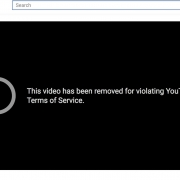Ron Unz is an interesting guy. After a successful business life as an innovator and entrepreneur, he now devotes himself, at unz.com, to offering for readers’ consideration a number of alternatives to the traditional and official narrative fed to us by government, the media, the schools and history books. His mission can be summed up in this phrase that he uses in an article called American Pravda:
The realization that the world is often quite different from what is presented in our leading newspapers and magazines is not an easy conclusion for most educated Americans to accept.
Mr. Unz does not ram his point of view down our throats and demand that we swallow and fully digest. Rather, he presents alternative sources, gives reasons why they might be considered credible, and invites us to make up our own minds or do further research on our own if we are so inclined. He simply wants us to be open to the idea that the official, widely accepted narrative may not be truthful. Donald Trump points to “fake news”, but Ron Unz is a little more artful in his use of language.
To cite one example, unz.com recently published an article questioning John McCain’s claims of being a torture victim in Vietnam. In the article, Unz cites journalistic sources, based on research, that have published the opposite case, including what he calls “Sidney Schanberg’s massively documented expose” of a cover-up of Vietnam War POW scandals. Unz also details his own first hand conversations with Vietnam vets who make charges about McCain’s collaboration with his captors and his broadcasting of their propaganda, and he points to finding some contemporaneous articles in Stars and Stripes and on the UPI wire service.
His main point is not whether or not McCain was a liar. It is to surmise what the implications might be. Powerful people in the establishment and the deep state possessing incriminating information about a political star trading on his war hero status could use it to manipulate his behavior and political decisions. Why was McCain such a persistent and unapologetic war monger? Why did the media unite in praise and why were they unwilling to consider alternative evidence? What if McCain had won the Presidency? Who would have controlled him? What narrative would they be peddling?
The challenge in this age of fake news and untrustworthy narratives is that the onus is on each of us as individuals to find our own truths, rather than accepting someone else’s.
Katie Hopkins is a UK journalist who writes at MailOnline. She is concerned that her country, like many in Europe, is culturally at risk in the face of an onslaught of Islamist immigrants. Her position is opposed by the establishment. The official narrative of the multiculturalists revolves around the rights of the immigrants, not the rights of UK citizens. Anyone who, like Hopkins, takes the opposite point of view is vilified and conceivably opens themselves to legal liability.
Hopkins tells us that we have three actions we can take to resist the assaults of the establishment when they assert the primacy and sacred unchallengeability of their institutionalized position.
First, reject the narrative. In her specific case, she calls it the mantra of multi-cultural acceptance: that multiculturalism is intrinsically good, that we should all be “united” even in the face of the shocking, deadly violence committed by immigrants, and that we should “carry on as normal” – even when conditions are far from normal in a UK where communities and individuals are living in cowed fear of assault.
In the more general case, all of us should be perspicacious enough to spot official media-endorsed or government-endorsed or establishment-endorsed or corporately-endorsed narratives, and question them. Ask ourselves if we know if they’re true, and if we suspect they may not be, to try to find alternative sources and check their credibility.
Which takes us to Ms. Hopkins’ second action: we must arm ourselves with our own information. Look for the core truth that lurks within the official filter. She has been exemplary in doing so. She went inside the immigrant way station outside Calais in France, known as “The Jungle”, where migrants camp, waiting to jump trains and trucks to the UK. She witnessed the violence in the camp first hand, and she knows that the immigrants bring their violent antipathies with them to their new countries. She travelled to the “no-go” areas of Sweden to witness for herself the total takeover by the immigrant population who have fought back the police protection that would normally be expected by citizens, leaving them fully exposed and unequipped to defend themselves.
The rest of us are probably not inclined to go to such first hand lengths for truthful information, but we can listen to those who do, and choose whose evidence we give greater weight to.
And thirdly, and most importantly, we must find the moral courage to fight back. It takes bravery to withstand the aggressive media attacks and the vitriolic social disapproval that holding the wrong opinion or favoring the minority report can bring upon us. Both the media and social networks can be vicious. But resistance is key, according to Ms. Hopkins, and we must gird ourselves.
Slowly, she believes, the quiet rumblings of discontent at being force-fed the establishment narrative will become a roar; people will demand to be heard, even when they hold a non-approved opinion. Eventually, we can turn the tide.








